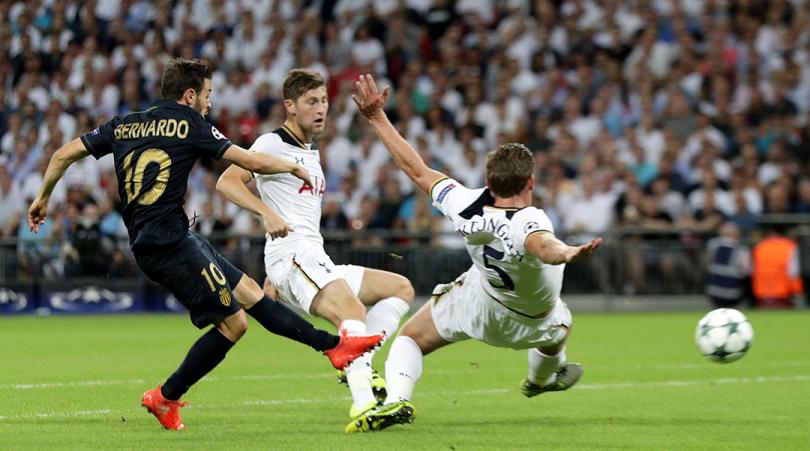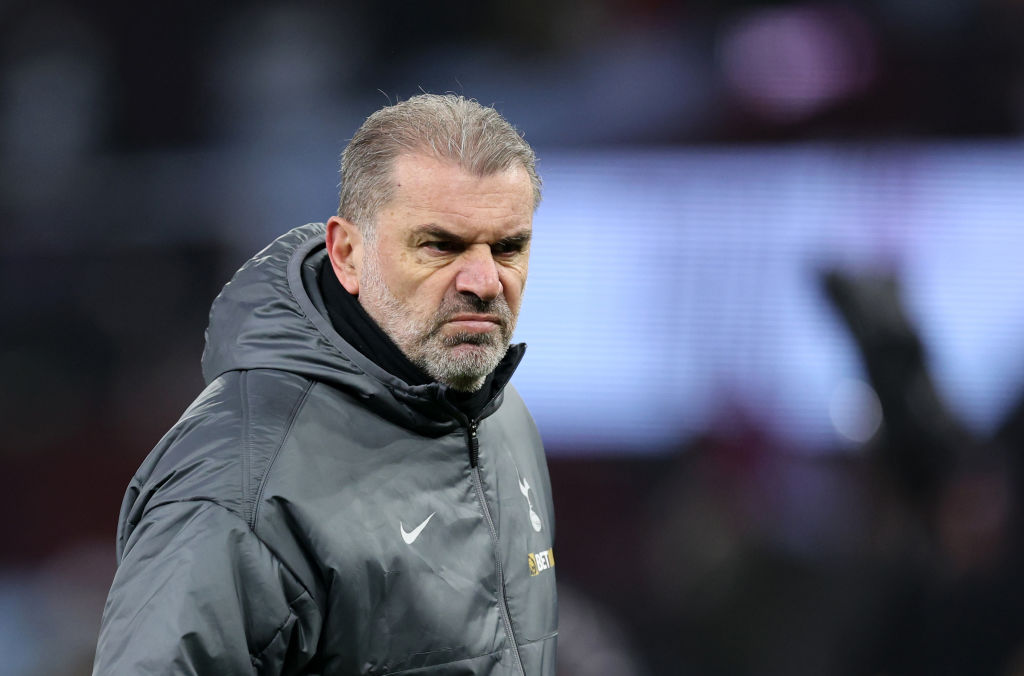5 big things to look out for in the Premier League this weekend
Alex Hess picks out the key talking points ahead of another round of top-flight tussles
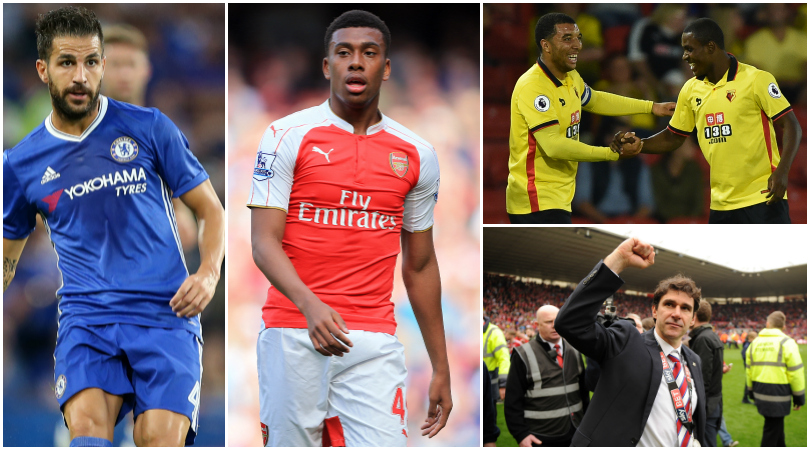
1. Can Deeney and Ighalo punish United’s defensive wobble?
Troy Deeney and Odion Ighalo may not be able to match Kevin De Bruyne and pals for silk, but if there’s one thing they do well, it’s being bullish and direct
Granted, they were faced with one of the league’s most hypnotic big-game performances in recent memory, but what was especially striking about Manchester United’s derby loss last weekend was how bizarrely un-Mourinho the entire thing was. In stark contrast to their coach’s trademarks, United were poorly organised, lacked defensive shape and showed little appetite for the battle.
The chief culprits here were the men in midfield – not least the free-wandering Paul Pogba – but not far behind them was the centre-back pairing of Eric Bailly and Daley Blind, previously unimpeachable but exposed during those opening 40 minutes for exactly what they were: an unfamiliar, unnatural, and comparatively low-pedigree defensive pairing.
No great shame in that, mind, and, Mourinho being Mourinho, it’s reasonable to expect these early minor crinkles to be ironed out in a matter of weeks. In the meantime, though, the heart of United’s defence looks susceptible to the kind of bullish, direct, silk-booted attacking moves with which City reaped their fruit last weekend.
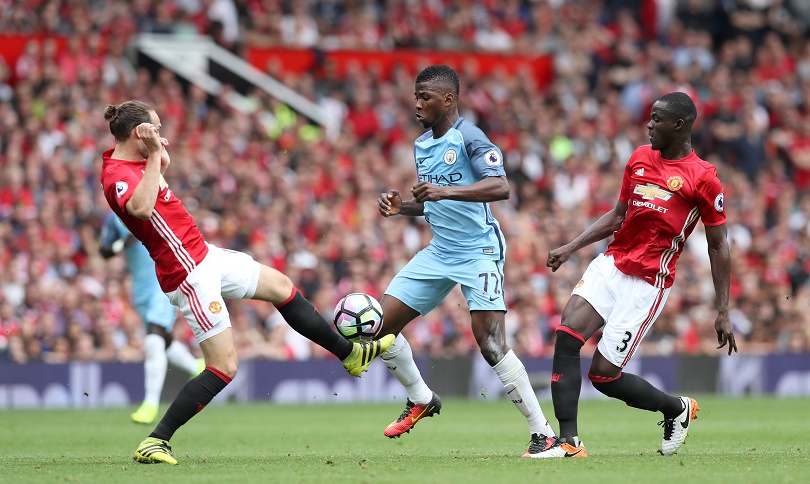
Troy Deeney and Odion Ighalo may not be able to match Kevin De Bruyne and pals for silk, but if there’s one thing they do well, it’s being bullish and direct. Watford's magnificently archaic strike duo had been spluttering a bit in the opening weeks, but Saturday’s glorious rout in the East End saw them click back into gear just in time for the visit of United. In a proper, old-fashioned physical duel, there are few more effective strikers in the league than Deeney, while there are few better than Ighalo when he’s got a defender isolated one-on-one.
United’s opponents this week will be significantly more low-key, but the demands will be much the same: if Mourinho’s men want to win, they’ll need to show shape, organisation, and a bloodthirsty taste for battle.
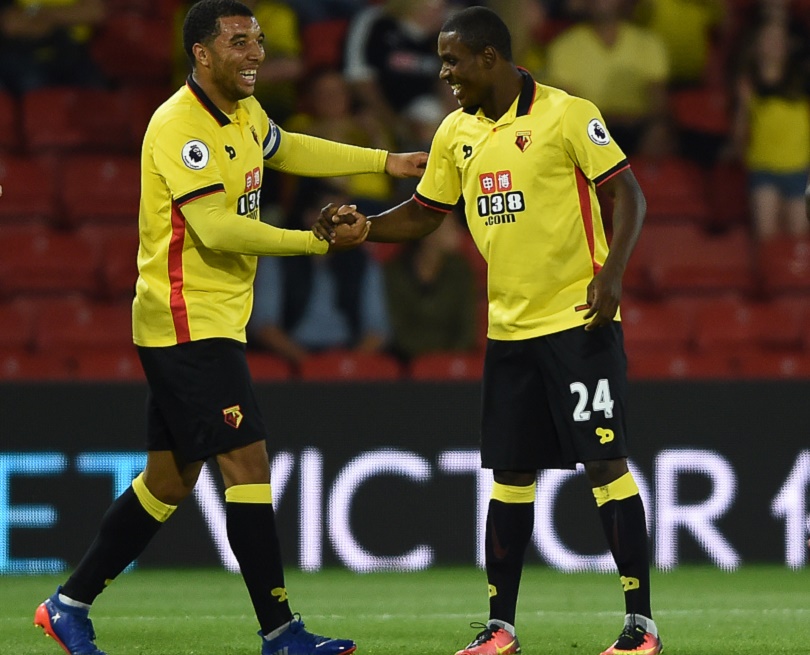
2. Will Fabregas even get served in last-chance saloon?
Get FourFourTwo Newsletter
The best features, fun and footballing quizzes, straight to your inbox every week.
Whatever Conte’s priorities, any inability from Fabregas to convince the Italian that he’s worth a place in the side should surely be read as a failure on the player’s part rather than mere stubbornness on the coach’s
A big-club clash under the floodlights; a spot at the league’s summit to be claimed; a high-quality opponent who can be undone by the right pass at the right time. Friday’s meeting with Liverpool would, you’d think, have been exactly the sort of game for which Chelsea parted with £30m for the services of Cesc Fabregas two years ago.
But the Spaniard will almost certainly start on the bench – as he has every game so far this season – third choice behind Nemanja Matic and N'Golo Kante, both of whom possess a fraction of his technical ability. Ahead of them in the No.10 role, the hard-running Oscar has provided another seemingly unmoving buffer between Fabregas and a place in Antonio Conte’s starting line-up.
It’s easy to read this as mere bad luck on Fabregas’s part: the simple incompatibility of a midfielder who plays the game at his own pace with his new coach’s pre-requisite for a high-intensity engine room.
Fabregas provides the assist for Costa's winner against Watford
Or maybe that’s letting the Spaniard off too lightly. Consider, for instance, Conte’s first move when putting together his all-conquering Juventus side: signing ageing midfield stroller Andrea Pirlo to orchestrate things from the centre circle, cigar clenched firmly between his teeth. Conte may prefer dynamism to dexterity, but he’s not fundamentalistic about it; there’s room in his midfield for a one-paced puppeteer if he deems the player good enough.
It’s all starting to look rather gloomy for Fabregas, for so long earmarked as the rightful heir to Xavi’s throne, but discarded by his beloved hometown club (the second time around) after just three seasons after failing to make the expected impact. The former golden boy with the world at his feet will be 30 when the curtain closes on this season, and the magnificent six-month spell with which he began his Chelsea career, rather than setting the tone for his second stint in England is now the outlier in what’s been a vaguely underwhelming two years.
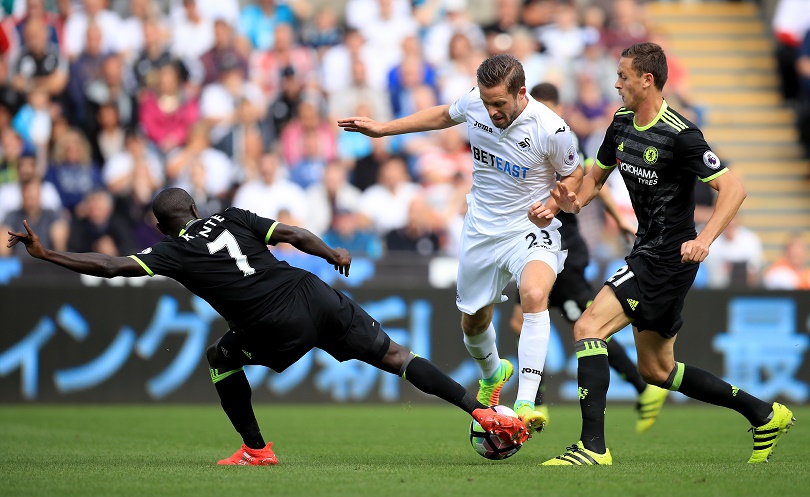
Whispers of a January loan to Milan are becoming ever-louder and that may be the best thing for everyone. But whatever Conte’s priorities, any inability from Fabregas to convince the Italian that he’s worth a place in the side should surely be read as a failure on the player’s part rather than mere stubbornness on the coach’s.
He’s normally granted a second-half cameo, though, and against a Liverpool side with no holding midfielder, an eternally leaky defence and a goalkeeper who’s long been susceptible to a well-hit long-ranger, Fabregas may just be given the tools to make a late case for the defence.
3. Can Iwobi work his way into Arsenal’s crowded forward line?
Iwobi was impressive too, passing assuredly, dribbling fearlessly and generally taking to the occasion in a way that would have been surprising had he not done the very same thing last season with a display of exciting maturity at the Camp Nou
In what we can broadly term as Arsenal’s post-Vieira era, it’s often seemed as though the club’s recruitment strategy has been to acquire as many fleet-footed, ball-carrying, creative players as possible and work from there.
And acquire them they have. Last season alone, Wenger could (sometimes) pick from *deep breath*: Tomas Rosicky, Jack Wilshere, Mesut Ozil, Theo Walcott, Alex Oxlade-Chamberlain, Aaron Ramsey, Alexis Sanchez, Serge Gnabry and Joel Campbell for the supporting-attacker berths in his 4-2-3-1 system, while the likes of Gervinho, Andrey Arshavin and Lukas Podolski have all come and gone in recent years.
And now another for the list: Alex Iwobi, who, given the sheer volume of competition, has done well to get any time on the pitch whatsoever, let alone a starting berth in Arsenal’s toughest fixture of the season so far, Tuesday’s 1-1 draw at PSG. The Nigerian was impressive too, passing assuredly, dribbling fearlessly and generally taking to the occasion in a way that would have been surprising had he not done the very same thing last season with a display of exciting maturity at the Camp Nou.
Next to those two excursions, you’d imagine a trip to Hull might look like easy pickings. Not necessarily true. Away trips in the Champions League are commonly seen as ‘high-pressure games’ but in some ways they are the complete opposite: with Arsenal underdogs and him a raw youngster, zero blame will be sent his way should he put in an anonymous performance. That freedom from expectation can be liberating.
Arsenal’s trip to Hull on Saturday will incorporate three things those two games didn't: limited, combative opponents, the impetus on Arsenal to attack and the expectation on them to win. It represents a different type of challenge for Iwobi than PSG and Barcelona, if not necessarily a more difficult one, and it will be intriguing to see how he takes to it if picked. He’s earned the chance.
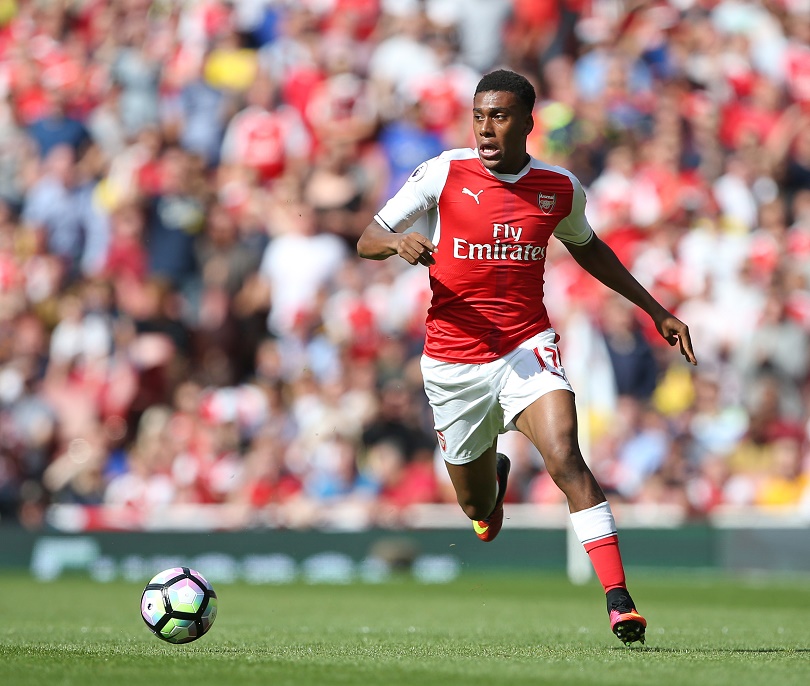
4. Will anyone ever risk a rabona again?
Troy Deeney revealed that the humiliation of being “mugged off” was what lit the fire in his side’s belly, and thus prompted the turnaround
Common wisdom would have it that West Ham’s Icarus-like exuberance cost them last weekend. The game’s opening half-hour, in which Slaven Bilic’s men raced into a two-goal lead, was notable for not one rabona, but two: Payet’s joyous assist for the second goal had been preceded by a similar feat of contortionism from Manuel Lanzini in taking a shot minutes earlier.
Once the tide had been comprehensively reversed and Watford had left the field with a 4-2 win, Troy Deeney revealed that the humiliation of being “mugged off” was what lit the fire in his side’s belly, and thus prompted the turnaround. It was a nice bit of professional disclosure, tallied with events nicely, and it became ‘the story’.
But perhaps it was all nonsense. Maybe Watford (who’d already missed a sitter at 1-0 down) got back into the game through one fluky deflection and one moment of defensive-catastrophe-cum-goal-poaching genius, and from then on the momentum was theirs. Perhaps West Ham’s showboating, rather than cost them their lead, literally helped them double it.
Payet's rabona assist against Watford
Or perhaps there’s some truth to both readings. Either way, here’s hoping the pervasiveness of the first doesn’t somehow deter Bilic’s men – or anyone else for that matter – from ever attempting the odd moment of crowd-pleasing silliness again. After all, football's meant to be fun, and there’s nothing more fun than seeing someone get mugged off. Or to quote Bill Gates: “If you can’t make it good, at least make it look good.”
5. Who'll conquer El Clasico-lite on Merseyside?
You can either marvel at the globalised, cosmopolitan state of England’s top flight, or feel an instinctive disgust at the duopolistic influence these two economic juggernauts hold over an entire continent
It says plenty about the many-tentacled Barcelona-Real Madrid rivalry that an ostensibly mid-ranking clash in England’s north-west will be steeped strongly in the legacy of both clubs.
When Middlesbrough visit Everton on Saturday evening, the man in the home dugout, Ronald Koeman, can look back on a six-year playing stint in Catalonia during which he collected three league titles, one Spanish cup and one European Cup (walloping home the winner in the Wembley final). Koeman’s coaching career began at the knee of Louis van Gaal, first in the employment of his country during the 1998 World Cup then joining his compatriot back for two years at the Camp Nou.
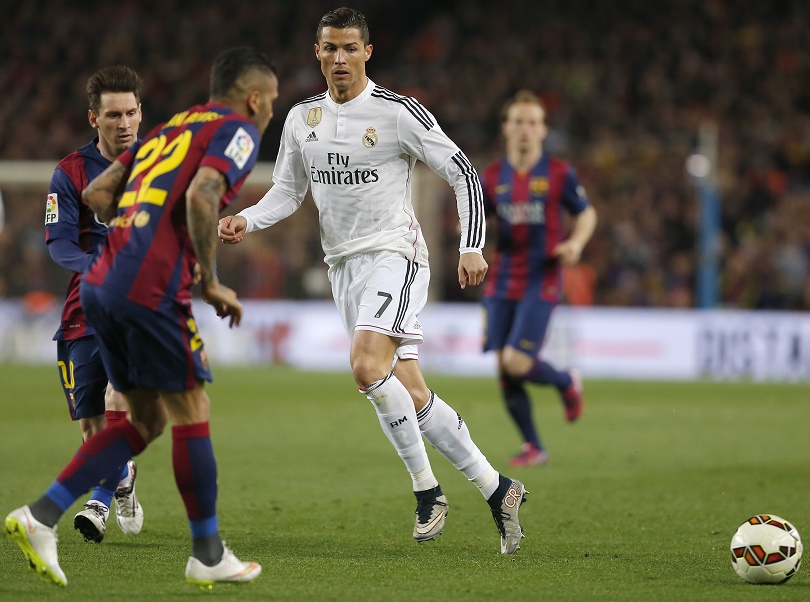
His opposite number will be Aitor Karanka, who between 1997 and 2002 won one league title, two Spanish Cups and – wait for it – three Champions Leagues with Barça’s rivals. Like Koeman, he learned the ropes under a similarly decorated supercoach, spending three years as assistant to Jose Mourinho (himself mentored by Van Gaal back at Barcelona, at precisely the time Koeman had been taken under the wing of the same man. Small world.)
Among Boro’s ranks can be counted Victor Valdes, formerly of Pep Guardiola’s epochal Barcelona side, and Alvaro Negredo and Adama Traore, two centre-forwards who were schooled at Real and Barça respectively without ever making a dent in the clubs’ first-team setups.
Their hosts, meanwhile, can call on Gerard Deulofeu, who spent a solid 12 years polishing his skills at La Masia before heading to England. Goalkeeper Martin Stekelenberg’s formative years at Ajax encompassed playing under Koeman and Henk ten Cate, who’d both coached at Barcelona previously, and Ronald de Boer, who spent half a decade there as a player.
All fairly interesting, if not a bit weirdly incestuous, and it invites two interpretations: you can either marvel at the globalised, cosmopolitan state of England’s top flight, or feel an instinctive disgust at the duopolistic influence these two economic juggernauts hold over an entire continent. A bit of both, perhaps.
Either way, there’ll be no shortage of first-class graduates being put to work at Goodison Park on Saturday evening, which in theory should mean a game loaded with wiliness, wizardry and sophistication. With the TV cameras in tow, here’s hoping theory translates to practice.
